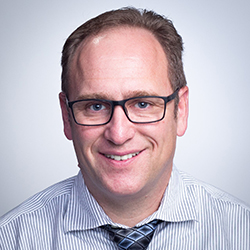Biography
Dr. Mandell received a B.A. degree in Biology with a concentration in Environmental Science from Carleton College (Northfield, Minnesota) in 1999. After several years working as a research technician, he attended graduate school at Washington University in Saint Louis (Missouri) and received his Ph.D. in Biology and Biomedical Science (Microbial Pathogenesis) in 2011. He then completed four years of postdoctoral training in cell biology at the University of New Mexico.
Personal Statement
Our research explores how cells maintain health and defend themselves against stress and infection through a process called autophagy — the cell’s recycling and quality-control system. We investigate how a family of proteins known as TRIMs act as key regulators of autophagy. Our work has shown that TRIM proteins can both organize the autophagy machinery and selectively target harmful materials, such as viral proteins or damaged mitochondria, for removal.
We are particularly interested in how autophagy connects to the immune system. For example, we have uncovered how TRIM5?, a protein known for its antiviral activity, also controls mitochondrial health and triggers antiviral signaling pathways. More recently, we’ve found that autophagy-related processes help preserve the structure of critical cellular compartments like the Golgi apparatus. By uncovering these links between autophagy, immunity, and cellular stress responses, our lab aims to reveal new strategies for protecting cells in the contexts of infection, neurodegeneration, and other diseases. Trainees in our lab use molecular, biochemical, and cell biology approaches to explore these fundamental questions and contribute to discoveries at the interface of cell biology and immunology.
Dr. Mandell's publications: https://www.ncbi.nlm.nih.gov/myncbi/1bqFzVvi-8oAm/bibliography/public/
Key Publications
Journal Article
Saha, B, Salemi, M, Williams, G, L Oh, S, Paffett, M, L Phinney, B, Mandell, Michael, 2022 Interactomic analysis reveals a homeostatic role for the HIV restriction factor TRIM5? in mitophagy. Cell reports, vol. 39, Issue 6, 110797
Journal Article
Saha, B, Chisholm, D, Kell, A, M Mandell, Michael, 2020 A non-canonical role for the autophagy machinery in anti-retroviral signaling mediated by TRIM5?. PLoS pathogens, vol. 16, Issue 10, e1009017
Journal Article
Kehl, S, R Soos, B, A Saha, B, Choi, S, W Herren, A, W Johansen, T, Mandell, Michael, 2019 TAK1 converts Sequestosome 1/p62 from an autophagy receptor to a signaling platform. EMBO reports, vol. 20, Issue 9, e46238
Journal Article
Mandell, Michael, Jain, A, Kumar, S, Castleman, M, J Anwar, T, Eskelinen, E, L Johansen, T, Prekeris, R, Deretic, V, 2016 TRIM17 contributes to autophagy of midbodies while actively sparing other targets from degradation. Journal of cell science, vol. 129, Issue 19, 3562-3573
Journal Article
Mandell, Michael, Jain, A, Arko-Mensah, J, Chauhan, S, Kimura, T, Dinkins, C, Silvestri, G, Münch, J, Kirchhoff, F, Simonsen, A, Wei, Y, Levine, B, Johansen, T, Deretic, V, 2014 TRIM proteins regulate autophagy and can target autophagic substrates by direct recognition. Developmental cell, vol. 30, Issue 4, 394-409
Languages
- English
- Spanish
Courses Taught
Dr. Mandell co-directs the UME Phase 1 "Immune Responses to Microbes" block.

